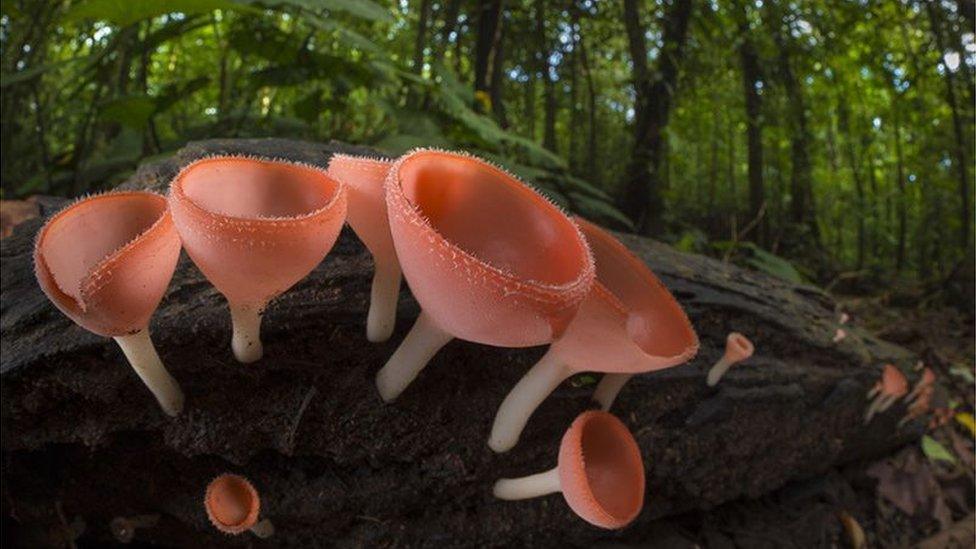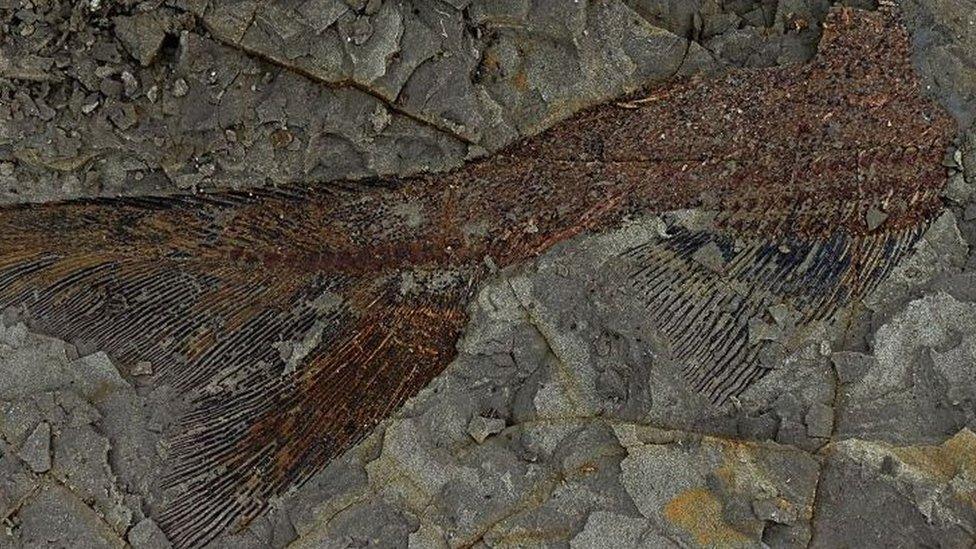Canadian arctic fungus fossils could be oldest on Earth
- Published
- comments

Image of fossil under a microscope
Is this the oldest known fungus on Earth? Well, that's what scientists think.
The tiny fossils were found in mudrock in the Canadian Arctic.
The small organisms were discovered in shallow water shale, a kind of fine-grained sedimentary rock, in a region south of Victoria island on the edge of the Arctic Ocean.
Tests on the shale revealed that it formed between 900 million and one billion years ago.
The age of the rock makes the fungus half a billion years older than the previous record holder, a 450 million-year-old fungus that was found in Wisconsin, USA.
Using a microscope, scientists could make out the branches of the fungus.
What does this tell us about life on Earth?

Some fungus in Costa Rica
Fungi have an important part to play in ecosystems. They break down organic matter and return nutrients to the ground to help plants grow.
If these fossils are confirmed as being fungus, their discovery could change what we know about previous life on Earth.
Fungi and animals used to be on the same branch of the evolutionary tree. So if fungi had already evolved a billion years ago, primitive animals might have too.
But we're talking REALLY primitive animals - one of the scientists who wrote the study said: "We're not talking about anything big like dinosaurs. It would be something very simple. Perhaps a sponge."
- Published2 April 2019

- Published22 October 2017

